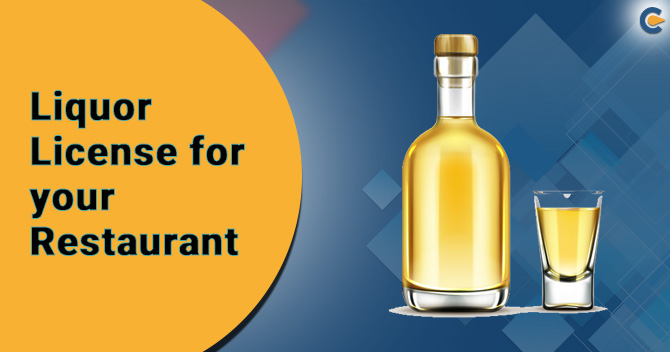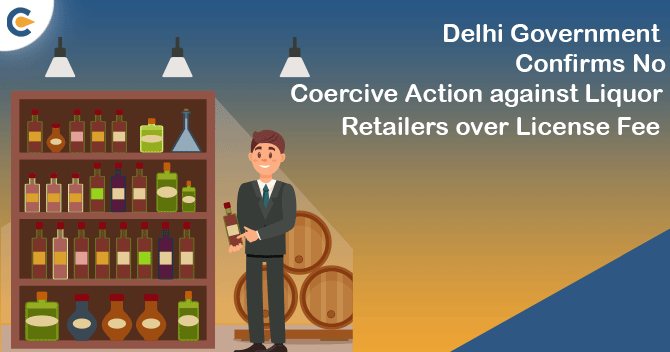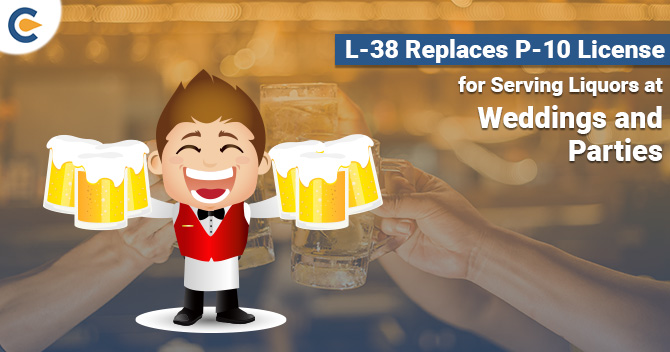Restaurant liquor in a bar, a pub, a hotel, and so on is legal, only if the seller holds a valid liquor permit, which is called a liquor license. The state department in charge of approving this license is different in each state across India, but it is regulated by the government. Furthermore, different cities have certain restrictions that are particular applies to them.
Every state has its own set of rules for restaurants for liquor and alcohol consumption and age restrictions. However, the government forbids home delivery of alcohol. It has to be solely bought physically from a licensed shop. Therefore, it is important to understand how to apply for a liquor license for your restaurant.
Types of Liquor Licenses for Restaurant
There are four types of Liquor Licenses found in India for a restaurant. It largely depends on what kind of liquor one has to sell, and how much profit one will derive from it. The following as described below:


Beer and Wine Liquor License
This is the license one needs to acquire if the restaurant owner intends to sell only beer and wine to the customers. Sale of any other kind of liquor or distilled spirits of other kinds is prohibited. Normally, small restaurants acquire this type of license.
Brewpub Liquor License
If the restaurant owner has in charge of making their own beer and wine, a brewpub liquor license is required. Some states also require a separate license altogether in order to serve this beer or wine to the customers.
Restaurant Liquor License
This type of liquor license is also called an “all-liquor license.” It is required if the restaurant owner intends to sell beer, wine, and liquor to its customers on their own premises. Generally, a restaurant owner derives its principal income by selling food items and for a certain part of that revenue by selling alcohol.
Tavern Liquor License
This type of liquor license needs to be acquired by a restaurant owner where half of the business is derived by selling alcohol and the other half by selling food items. However, this license is functional only in some states. Depending upon the state government’s regulations, it might not exist at all.
Application Process for a Liquor License for your Restaurant
The restaurant owner applies for a liquor license permit from the Excise Department from their state government, where they want to open a restaurant. The application process applied for a liquor license is in 7 simple steps as below:
- Every state has its own rules and regulations regarding the sale, purchase, and consumption of alcohol. First, one needs to know about all these rules laid down by the respective state government where the restaurant is located. After checking out the rules and regulations laid down on the website of the state excise department, one can also survey the nearby liquor shops in that area.
- Then, visit your state government’s website and fill the application form for a liquor license for a restaurant. There is a need to create an account and login online. The documents required will be submitted, and the same will be shown to the concerned Excise Officer, who inspects the restaurant premises. A report then will be submitted to the higher liquor permit granting authorities.
- All background details have to be provided, such as age, any prior experience in the restaurant business, a clean personal record. The proof in support of the claim has to be submitted as well.
- All the relevant details are required to be filled in the application form and submit the form to the respective state authority. The details also include which type of liquor license the restaurant owner wants to acquire.
- Once the verification process has been done, the state authority will then release a public notice stating the name and the type of permit that the restaurant owner has applied for. It will have to be publicly displayed for everyone in the area for a definite period of time. During this time, if any objections are raised by the local residents, then the applicant has the right to defend its proposal. And in case if there is no objection raised, the state authority will proceed to review the application.
- The location must be at a certain distance from any school, hospital, park, or place of worship in the surroundings.
- After the final approval, the applicant will have to submit the prescribed fees as per the guidelines. Finally, the liquor license for a restaurant will be issued.
Read our article:How to Get Hookah Lounge License in India? – Process & Fees
Renewal of Liquor License for restaurant
The liquor license, once granted, will last for a year from the date of issuance. Normally, a restaurant owner needs to renew the restaurant’s liquor license every year. The renewal application is filled, followed by the payment of the prescribed fees for the renewal. It is advisable that one must be familiar with all these costs in detail before starting their restaurant. This would safeguard against the unforeseen finances.
However, there are chances that sometimes the liquor license can be revoked by the authority if one is found guilty of selling alcohol on dry days as prescribed by the state or selling alcohol to underage customers or might not following the guidelines that have been laid down by the local authorities.
Documents required to apply for a liquor license for your Restaurant
- A certificate of registration of eating house permit (issued by the DCP)
- No Objection Certificate from the state Fire Service Department
- NOC from the Local Municipal Corporation.
- List of the name of directors in case of a company
- Proof about the legal status of the restaurant- whether it is a company, a partnership firm or another type of organization
- Proof that the restaurant is in legal possession
- A certificate that validates the completion of the restaurant or the hotel building
- Trade license from the local authority such as NDMC, GHMC, etc.
- Document of proof regarding applicant being an Income Tax assessment and Sale Tax assessment
- Identity proof as well as address proof of the applicant
- Income Tax returns
- An affidavit stating that the person applying has no history of a criminal record or pending dues to the government
Liquor Laws across the Indian states
In our country, the legal age of drinking for customers differs from one state to another. In New Delhi, the age of drinking is 25 years or above, whereas it is 21 years of age in Meghalaya. In the state of Goa, the age of drinking is 18 years. Hence, the legal drinking age is barely uniform throughout the country.
The consumption of alcohol is banned in the states of Bihar, Gujarat, and Nagaland, as well as in the union territory of Lakshadweep. In states such as Manipur, there is a partial ban on liquor consumption. Moreover, there are certain kinds of alcohol banned in the states. Every state witnesses its own dry days when the sale of alcohol consumption is completely prohibited.
The cost of alcoholic drinks is also varied from one state to another state. For example, the liquor tax rate is different in states from the rates in union territories. It means that the overall price charged for the same alcoholic drink has a possibility of varying from state to state.
Conclusion
In India, selling of liquor is one of the best profitable businesses for the Hotel and Food business Sector. It helps to boost the profit margin because of the low labor and high demand. In a legal context, Liquor License is a permit granted by the State Excise Department[1] to them who wants to sell or distribute alcoholic beverages or drinks at a particular restaurant or hotel. Everyone has to apply for a liquor license who wants to sell beer, hard drinks, etc. keeping in mind that every state has a different set of rules and regulations governing liquor that requires to be followed.
Read our article:Procedure for Obtaining Liquor License in India











